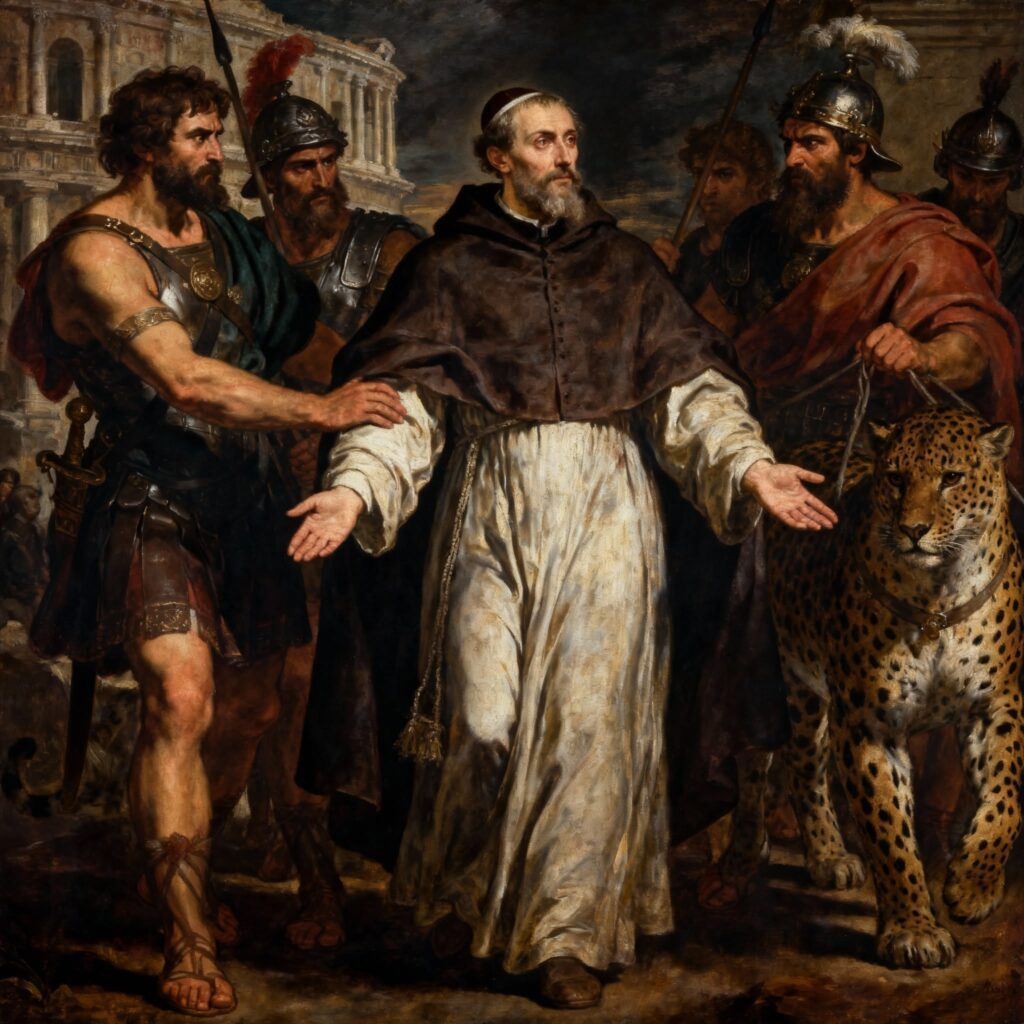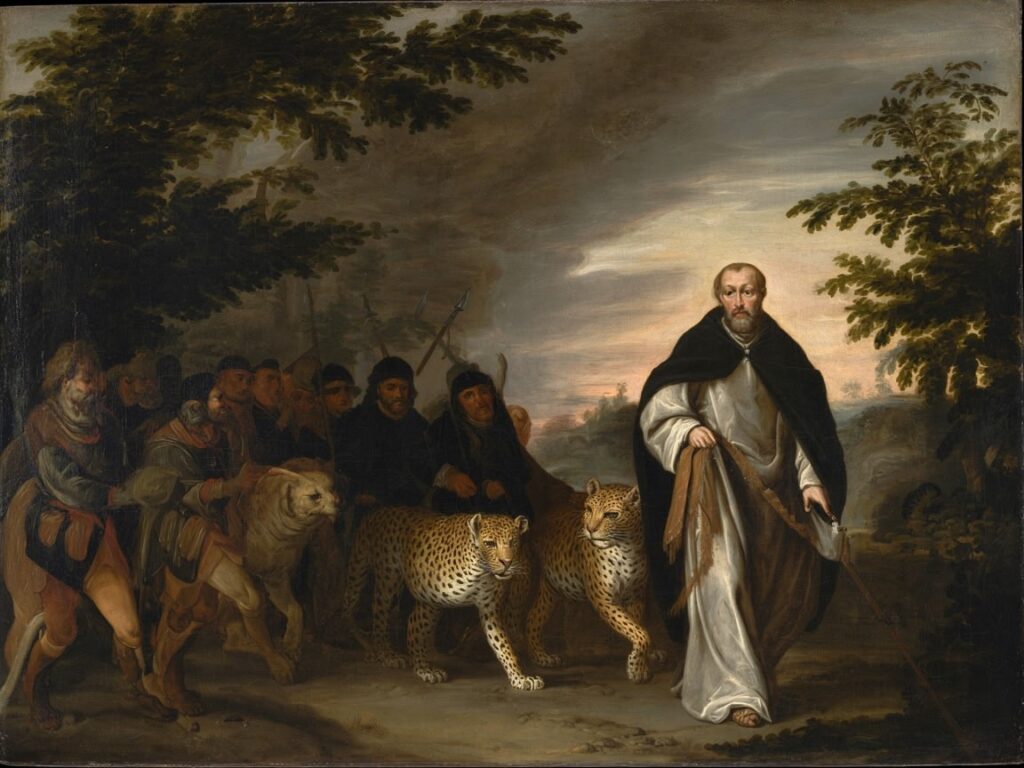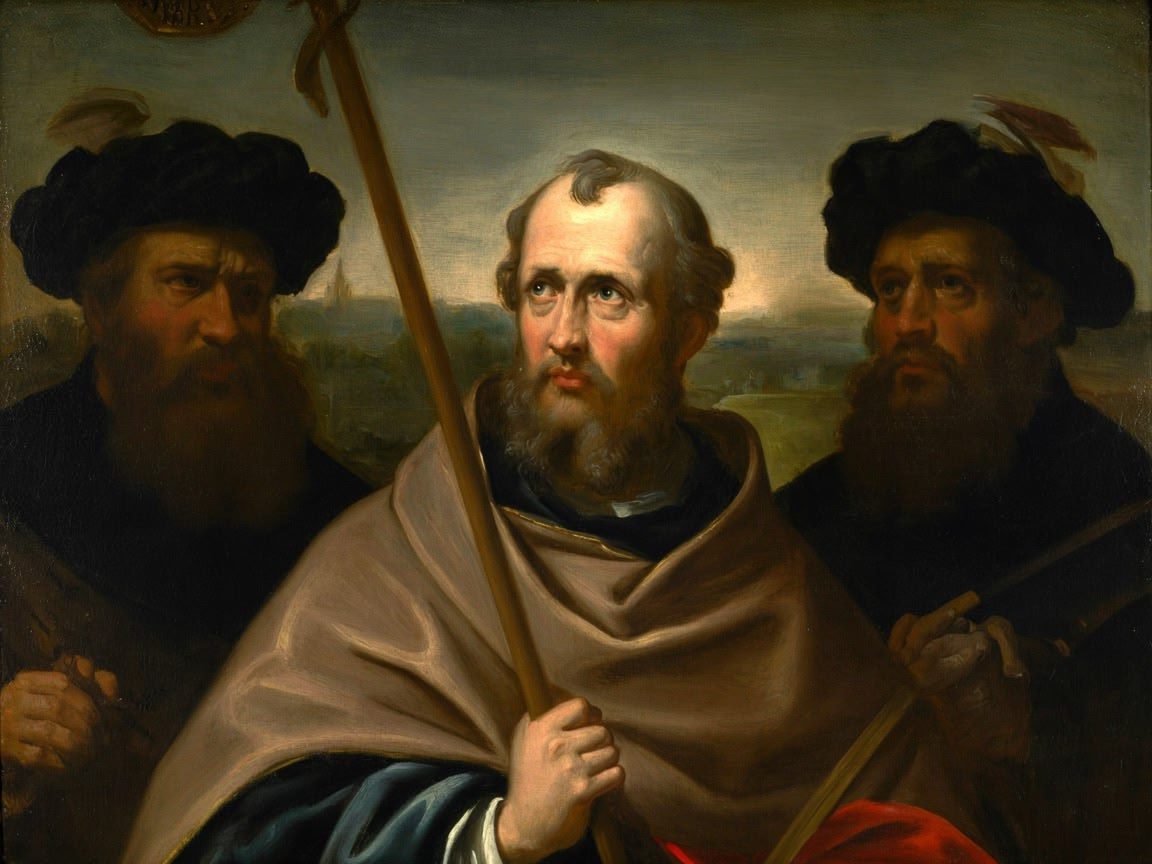Pastor of Antioch at the turn of the 2nd century, martyr in Rome under Trajan, architect of ecclesial unity and witness to an ardent Eucharistic faith, whose seven letters trace a path of imitation of Christ and name for the first time the Church “catholic”, between Antioch (present-day Antakya) and Rome, at the heart of a changing Empire.

To dive into the wake of Ignatius is to follow a bishop who walks towards Rome, leaving behind him letters burning with love for Christ and the Church.
Pastor of Antioch and disciple of the Apostles, he faced the persecution of Trajan and asked that he not be prevented from being offered as a grain delivered to the Father.
Died around 107-115, his memory still speaks of unity, the Eucharist and humble courage, in the service of the communities of Asia Minor and Rome.
Biography
Born around the middle of the 1st century, Ignatius quickly became one of the essential figures of the Church of Antioch, then the third largest city in the Empire after Rome and Alexandria.
Tradition presents him as the third bishop of Antioch, succeeding Evode and following in the footsteps of the apostle Peter, at the heart of a community where the disciples were for the first time called “Christians” according to Acts 11:26.
Under Trajan, a wave of repression hit Christians and reached Bishop Ignatius, who was arrested and sentenced to be delivered to the beasts in Rome, after a transfer under strict guard.
On the way, he passed through Smyrna and then Troas, and wrote seven letters addressed to the Churches of Ephesus, Magnesia, Tralles, Rome, Philadelphia, Smyrna, as well as to Polycarp, the bishop of Smyrna.
These letters manifest a marked Christological realism, a love of the Eucharist, and an ecclesiology centered on unity around the bishop, the presbytery and the deacons, against emerging excesses such as Docetism.
In Rome, Ignatius was delivered to the wild beasts in the Flavian amphitheater, sealing with martyrdom a life of pastor entirely oriented towards union with Christ and the service of the unity of the Church.
His death is traditionally placed between 107 and 117, and his feast day in the Roman calendar is celebrated on October 17, while in the East it is fixed on December 20.
His letters remain a major source of post-apostolic tradition and the earliest attestation of the term “Catholic Church” in Christian literature.

Legend
The established fact: seven authentic letters from Ignatius of Antioch have come down to us, testifying to his doctrine of unity, the Eucharist and the episcopal ministry at the turn of the second century.
Medieval tradition sometimes identifies Ignatius with the little child that Jesus placed among the disciples, playing on his nickname “Theophorus”, “God-bearer” or “carried by God”, without historiography making this a clear point.
These letters become a milestone in ecclesial memory, where Rome “presides over charity” and where the Church is called “catholic,” marking an awareness of universality in the service of communion.
Symbolically, the figure of Ignatius unites march, flesh and choir: march towards Rome, realism of the incarnation against docetism, and ecclesial choir tuned to the bishop “like the strings to the zither”.
The traditions surrounding the relics and their transfers between Antioch and Rome speak of a memory shared by the East and the West around a pastor who became a sign of unity.

Spiritual Message of the Day
To be rooted in the living Christ, to walk in the Church, and to serve unity: these are the three lines of force which emerge from the letters of Ignatius.
Unity is not uniformity, but just agreement “like the strings of the zither”, where each finds its note in the service of the same song of charity.
The realism of faith rejects a disembodied spirituality: Jesus was truly born, truly nailed, truly resurrected, and the Eucharist engages the whole being. Image of the day: “I am the wheat of God,” writes Ignatius, accepting that the “teeth of beasts” mold it into offered bread, echoing the grain that dies to bear fruit.
Following him, seeking unity with patience, consenting to the costly truth, and letting the Eucharist grant daily life become a simple and solid path.
Prayer of the day
Lord Jesus,
Grant the grace to love unity and to be humble artisans of it among brothers.
Gives strength in times of trial, when fidelity is difficult and the temptation to give up is felt.
Awaken a concrete faith, loving your incarnation and living from your Eucharist, in the service of the “catholic” Church gathered by your charity.
Learn to listen to our pastors and walk with them, to sing your praise with one voice.
Through the intercession of Saint Ignatius of Antioch, make our lives a shared bread, offered for unity and mission, until all is agreed upon your note.
Amen.
To live today
- Take 10 minutes to read a letter from Ignatius (Ephesians, Smyrnaeans, or Romans) and note down a concrete call for unity.
- Pray for your bishop, priests and deacons, and make a gesture of reconciliation in the community.
- Offer a fast or discreet service for a person who is experiencing a test in their faith.

Memory
The liturgical memory of Saint Ignatius is celebrated on October 17 in the Roman Rite Church, and on December 20 in several Eastern Churches, a sign of a shared heritage.
Antioch, today Antakya, retains the trace of its episcopate within an ancient and radiant Christian community from its origins.
Rome remains the site of his martyrdom in the Flavian Amphitheater, where his confession of faith became a seed of unity and courage.
The traditions surrounding the relics evoke translations between Antioch and Rome, demonstrating a lasting link between East and West around this theophoric pastor.
Liturgy
- Readings/Psalm: Gospel of the vine and the branches, for living union with Christ who makes the Church bear fruit and grants harmony (Jn 15). Psalm of trust and thanksgiving of the witness in trial, to receive the grace of humble and joyful fidelity.
- Song/hymn: A song about charity and fraternal unity, echoing the phrase “she presides over charity” addressed to the Church of Rome, and the ministry of unity in Ignatius. A Eucharistic hymn linking offering and service, to let the altar shape daily life at the heart of communities.
Additional quotes and references
- “Where Jesus Christ is, there is the Catholic Church” (Smyrna 8:2): first attestation of the term in Christian literature.
- “Do not undertake anything without the bishop”: a unity received and served, not imposed, tuned “like the strings of a zither”.
- “There is no more fire in me… Come to the Father” and “I am the wheat of God”: prayers that sum up the total gift of Ignatius.



